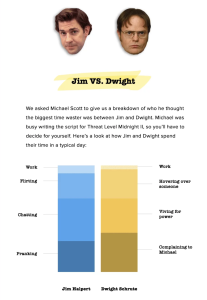Far too many work comp industry CEOs are dinosaurs.

Their refusal to adapt to today’s labor market will ensure they fail their investors/policyholders.
Two things triggered this post.
- an extensive conversation – or rather series of conversations – with the CEO of a very large payer whose workers are no longer required to work in office. When I asked about work from home, this eminently reasonable individual was mildly surprised, saying something like “of course we support WFH…there’s no reason for most of our folks to go to an office…they did just fine during COVID and like WFH so why change?” This person noted real estate and related costs would be reduced as would other expenses associated with an office-based work environment.
- A conversation with the estimable Bill Zachry, a person I am fortunate indeed to consider a good friend and mentor. Bill noted the challenges payers are experiencing finding and keeping adjusters.
It seems wildly obvious that WFH will help payers keep and find staff while lowering overall costs, significantly reducing ULAE (unallocated loss adjustment expense). Every payer C-suite has been on a cost-cutting rampage for several years in an effort to improve margins and adapt to declining frequency and shrinking rates.
In what can only be described as a logical fallacy, many payers are now “requiring” staff return to the office for more than an occasional day.
Good luck with that.
Most people do NOT have to work in an office, yet many CEOs refuse to accept that they – the Tyrannosaur Rexes of our time – cannot bend lesser beings to their will.
Sure, many workers are already back in the office, and some few prefer it. But most would much prefer not:
- having to deal with child care emergencies by taking PTO;
- commuting;
- dealing with office politics;
- wasting time at birthday parties, Monday morning “how was your weekend” chats, water cooler analyses of whatever sporting event, updates on officemates’ kids amazing (insert school/sports/music/theater/other), or the millions of other time wasters engrained in office-based work.

Shockingly, workers would much prefer to spend the 2 hours or so a day commuting with their family, or doing work, or exercising, or gardening or whatever.
And they’d rather save big bucks by ditching a car and its attendant insurance, license, tax, toll and maintenance costs; giving up the monthly commuting pass; not paying to park; having lunch at home and on and on.
To be sure there are arguments, some of them even reasonable, in favor of in-office work…yet the fact that most every organization survived COVID WFH is a rather compelling proof statement that WFH works.
What does this mean for you?
Mesozoic-era management will fail as will its proponents and the organizations they lead.



I find it almost comical we are still debating remote, hybrid, and in-person work.
Adapt or die.
Forcing workers into the office when much of their work is done remotely is simply leadership failing to adapt. Leaders need to listen, learn new skills, and be more intentional about staying connected. All of this can be done if there is a genuine desire. Workers appreciate both flexibility and trust. When we build that into our work it is a “win, win, win.” (In keeping up with The Office reference.)
Hey Jen – Dwight disagrees…aggressively!
best Joe
Totally agree, Joe. This is the sentence that resonates the most: “Shockingly, workers would much prefer to spend the 2 hours or so a day commuting with their family, or doing work, or exercising, or gardening or whatever.”
Hey Fred – thanks for the note.
There are a gazillion benefits to less commuting, many of which will pay dividends in coming years. Lower stress, fewer cars generating less carbon, more quality time at home, probably slightly longer workdays for some WFH workers.
be well Joe
I really appreciate this comment: “Shockingly, workers would much prefer to spend the 2 hours or so a day commuting with their family, or doing work, or exercising, or gardening or whatever.” When we first allowed our employees to WFH, I noticed they were starting work when they would have started their commute. I made a point to remind them that the “gift” of work from home was the commute time that they could reclaim and not to begin work until their designated start time.
Thanks for the note Jay.
I’v heard from other execs that the work day has lengthened a bit for WFH folks…I don’t know the drivers but that’s an interesting perspective.
be well Joe
This post seems to exclusively correlate leadership’s opinion on WFH to being a “dinosaur” and I don’t think that’s a fair association. Your point(s) are valid, but to dismiss other factors is short-sighted, e.g. challenges and impact to culture with a remote-based workforce. Many of the big tech firms have gone back to a hybrid work strategy. By your logic, are they also “dinosaurs?”
Hey Tad – great to hear from you and hope all is well.
My perspective is a) most workers clearly prefer WFH, b) hiring is really tough, c) retaining claims and claims support personnel is really tough, d) ULAE reduction has been and continues to be a priority, and e) empirical evidence indicates for the most part challenges and impact on culture due to WFH have been minimal and in many cases offset by worker appreciation for the flexibility.
re the big tech firms returning to “hybrid” work…that’s a pretty interesting question. Notably many view hybrid as some days in the office and some days not. I don’t see that as Mesozoic in nature, I see that as embracing the positives of WFH while using in-person time for functions/tasks that are better suited to on-site work.
be well Joe